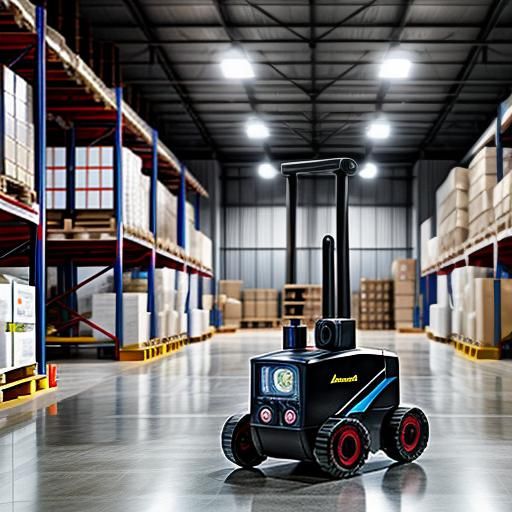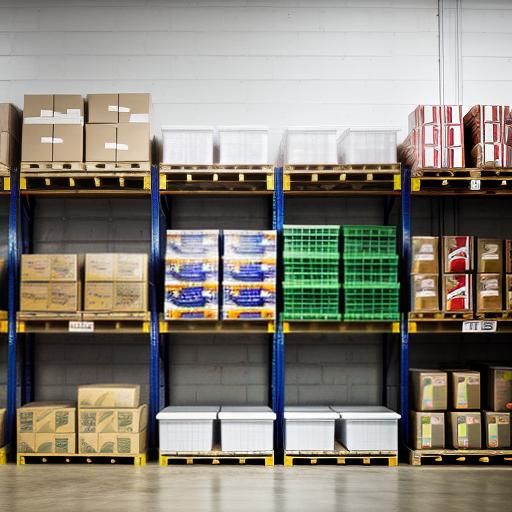
What Industries Will Benefit From Automation?
Automation is and has been drastically impacting the workforce in the United States and around the world. What is automation and what industries stand to benefit the most from its adoption?
8 Industries That Could Benefit the Most From Automation
Automation is continuing to improve production speed while decreasing the use of resources for everyone. Although its impact spans various industries, specific industries will —and currently do — experience incredible growth with the efficiency automation offers across multiple business operations.
In the United States, recruiting robot employees is increasing at an unprecedented rate in multiple industries. While this does not show the software and AI automation rate, we can only imagine these numbers are even higher.
To understand what industries can benefit most from automation what effect it has on businesses and what we as consumers will see in the future, we must examine what makes automation so important.
What Is Automation?
Before delving into what industries will benefit from automation, it’s essential to define it. In its simplest form, automation refers to replacing a manual process with a mechanical or electronic system.
This could be as obvious as replacing a physical cashier at a retail store with an automated kiosk that scans and bags items for you. It can also be more subtle, like an artificial intelligence system that manages employees’ schedules, calculates paychecks, and generates management reports based on performance.
Essentially, there are two types of automation that industries can take advantage of:
- Process Automation: This is when an entire process, or discrete steps within an operation, are automated. This would include what takes place when you order something online. Many tasks can be tracked and monitored through the simple use of a barcode and the information it can send. The whole transaction would be considered process automation, beginning with what you select until shipping.
- Industrial Automation: Otherwise known as factory automation, this type of automation is concerned with manufacturing objects rather than software tasks. This allows for the automated manufacturing of vehicles, appliances, and the assembly lines that make them.
Many industries take advantage of one or both of these types of automation. Let’s look at what industries currently use automation and what it can lead to as advancements continue.
1. Supply Chain
Supply chain and logistics are what drive the global economy. Businesses would not operate efficiently without a reliable system to bring supplies from point A to point B. Supply chain process automation is what makes it all possible.
With process automation, companies can increase the efficiency of how items are moved through their supply chain. Every “click” or swipe saves time and allows for faster system processing. For example, innovations in barcode scanning have transformed shipping and receiving processes through automation software.
Mobile barcode scanners and portable data terminals allow for real-time, on-demand review of inventory and location at every stage of the supply chain, from raw materials to consumer-ready goods.
There are a variety of industries that have already taken advantage of supply chain automation including automotive, consumer goods, retail, wholesale distribution, oil and gas logistics, pharmaceuticals, and the food and beverage industry.
These industries are benefiting from supply chain automation in two ways:
- Packaging: the packaging industry benefits from supply chain automation in the form of automated production lines and intelligent robotic arms packaging orders to optimize product fulfillment time.
- Inventory Services: what used to be a manual process, inventory service processes have been automated thanks to innovative supply chain technologies. Automated inventory services such as identifying and picking products have increased efficiency and speed, and what was once an impediment to business isn’t a problem now.
Virtually every industry has a supply chain of some sort, and automation helps drive it. This lets global companies complete tasks that would have taken days or weeks of delivery time into hours — enabling smaller businesses to stay competitive with what larger organizations provide their customers.
2. Manufacturing
The manufacturing industry is an excellent example of what automation can do for the world. Manufacturing is not only a process of the automotive and consumer goods industries, but it’s also a part of the aerospace, defense, and medical fields.
Many electronic devices are manufactured with high levels of automation, including smartphones and other handheld technology. Whether small or large scale, automation plays a hand in the manufacturing industry from order processing, production scheduling, the assembly line, production, to the last mile of the supply chain process.
3. Transportation
Automation is keeping people safe in the transportation industry. Automatic lane correction, braking technologies, and adaptive cruise control are making roadways and highways safer for both passengers and drivers.
While self-driving technology still requires more progress, assisted automotive technologies make the roads safe for individuals transporting goods, riding public transit, and driving to run errands.
Process automation and the use of barcodes in the public transit and transportation fields can help optimize routes and schedules, creating more efficient schedules and cutting down on fuel usage.

4. Education
In what is typically thought of as a paper-driven field, time-consuming tasks are now streamlined by automation. Education is now turning into an online world. Many academic institutions are currently taking advantage of process automation technologies for grading, creating transcriptions, and other administrative workflows that can quickly be done and updated. This allows teachers and professors to better support students, tending to their needs — especially for special education — while automation tracks scheduling and attendance. Educational institutions are also creating e-learning resources that give people worldwide the opportunity to learn in environments and from educators never before possible.
5. Healthcare
Out of all the industries, the healthcare field may be benefiting most from automation. The need for remote doctor visits, telemedicine, and even the “Internet of Medical Things” is what spurs medical researchers and professionals alike to use process automation technologies. Medication, prosthetics, specimens, and other healthcare resources can all be tracked and monitored instantly through the use of barcodes — saving researchers, healthcare professionals, and patients time and money. Technology in healthcare is used for medication delivery, health monitoring, imaging diagnostics, and even surgeries using robotics. Surgeons can now enlist the aid of robotics to perform procedures with more precision and control than human hands. In many cases, automation can make healthcare cheaper and more accessible for people in remote locations as well.
6. Robotics
Robotic food services are rapidly gaining traction as it evolves. The restaurant field is increasingly employing robots because they are more efficient in making dishes more uniform and efficient. For instance, Little Caesars recently patented a robotic arm for spreading dough, adding toppings, and baking pizza. While this is a rare occurrence, it does show the innovation that automation robotics can have in the food and beverage industry. Additionally, process automation is being used across the food and drink sector. Automation can handle a variety of tasks within this sector including taking orders, turning on appliances, cook times, and more. Food industry workers often risk their health in their roles, but thankfully, automation and robotics can take on these tasks — boosting efficiency and ensuring the safety of employees. In the age of COVID, these automated and robotic tasks can also limit the amount of human interaction with food, reducing the chances of spreading germs and foodborne illnesses.
In warehouses and distributions centers, Zebra’s Fetch Robotics are automating manual material movement using Autonomous Mobile Robots (AMRs). Robotics are increasingly useful and a popular solution for businesses looking to enhance their productivity using automation.
7. Retail
Both process and industrial automation are involved in a variety of retail operations. With the introduction of automated checkouts, cashiers no longer need to monitor and process transactions. Mobile scanning and barcodes are being used by retailers of all sizes to automate what was once handled by human hands. Thanks to industrial automation, many retail businesses can now operate around the clock, which equates to higher profits. Retail operations also benefit from process automation, as in the case with Albertson’s automatic replenishment, which increases inventory accuracy and reduces restocking fees. This would require fewer employees at all times, and could free up human capital for more critical, complex tasks.
8. Agriculture
The agricultural industry has had some of the earliest uses for automation technologies. With technology advancing at an ever-quickening rate, there are new ways to use automation for this industry. For instance, drones can remotely monitor crops, allowing farmers to make better decisions about crop rotations and irrigation. Various tasks are being automated, such as crop cutting, planting, and even harvesting. There are also several breakthroughs in agriculture automation where a robot can pick produce, plant seeds, and water plant crops. The result is improved efficiency and productivity, which is good for the farmer and the consumer. Such advancements have helped to improve agricultural yields around the world. These are just some of the industries that could benefit from automation technologies. In many cases, these technologies have been used to solve pain points or problems within certain sectors — saving companies thousands, if not millions, in expenses without sacrificing quality or service levels.
